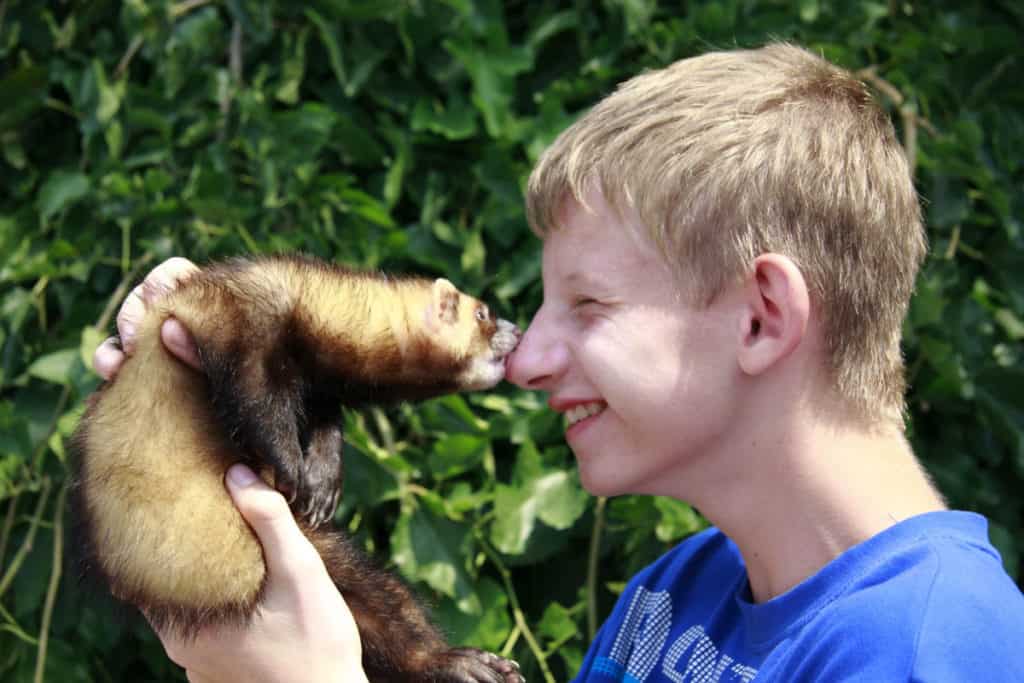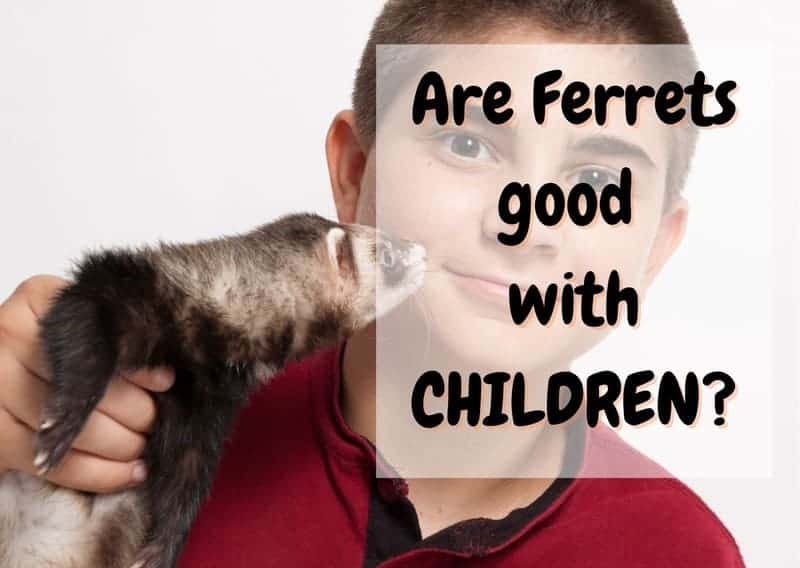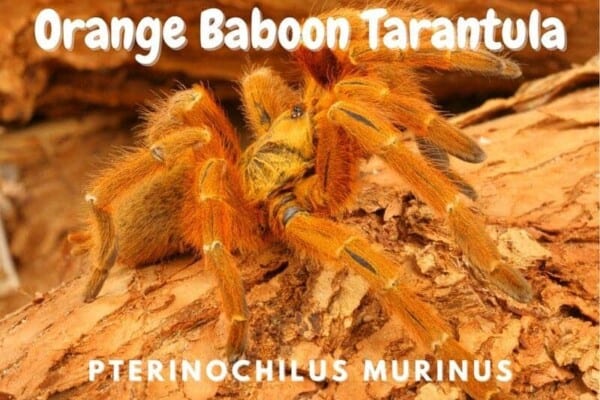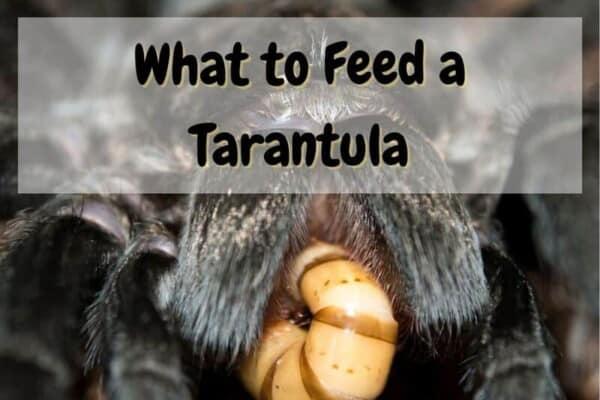If you’re considering bringing a ferret into your home and are wondering whether it will mix well with a family including children, this article contains everything you need to know.
Are ferrets good with kids? Yes, ferrets can make great pets for children. They are entertaining, playful, and clever, and can develop in your child a sense of responsibility. However, there must be some very clear boundaries set. Ferrets can be particular about how they are handled so they are not the best pets for small toddlers. It’s important to educate your children about ferrets before you purchase one.
This article will look into all the benefits of having a ferret can provide to you and your children. It will also go into detail about how to best make a ferret feel welcomed into his new home. By the end of this article, you will know whether adding this furry little friend to your family is the right fit for you.
Are Ferrets Good Pets For Kids?
Let’s dive into the nitty-gritty of the ferret-child combination. We will now have a look at 3 reasons why they make excellent pets for kids, and in the next section, we will analyze three reasons why they – sometimes – aren’t the best match at all. From then on, it will be your call whether to welcome or not that little furry into your home.
1. Ferrets don’t mind being handled
Ferrets have plenty to offer children and adults alike. They are incredibly cute and fluffy. They don’t like being held all the time, but they do enjoy being picked up and snuggled occasionally.
Not all pets particularly enjoy being squeezed and fussed over. Cats, for example, can be quite temperamental in that regard sometimes. Ferrets are no different, their personalities are so varied they may love cuddle time, or they may not.
2. Ferrets are stimulating creatures
Ferrets are very intelligent and can be taught many tricks. In some cases, they are even capable of utilizing a tool to help them with whatever it is they’re trying to achieve.
They won’t exactly be using a screwdriver but they will use sticks or other small items to help themselves out. Watching these little critters work can be interesting and funny, your kids will love it and so will you.
3. Ferrets create a sense of responsibility
Owning a pet can be a great character-building opportunity for children. They can give them some of the responsibilities of ownership that can help them develop into a more well-rounded person and grow.
This is easier for older children who may be able to care for the ferret mostly on their own, but younger children can still help out too.
Having your children feed and provide water for your ferret will help them grow closer together. If they are mature enough you could even teach them how to wash, brush and clean the ears of your new ferret.
It’s best that the ferret has been in the family for a little while before anyone but you try to do this, it may take your furry friend a little while to become calm and relaxed going through the health and beauty section of your weekly routine. Remember, bubble baths and Q-tips are not exactly common in the animal kingdom.
The Drawbacks Of Mixing Ferrets And Small Kids
There are a few drawbacks and considerations to be made when mixing ferrets and kids, especially young ones.
1. Ferrets are escape artists
Ferrets are very hard to catch when they escape, and they are, indeed, escape artists. The capability to flex their skeletons into incredible shapes means ferrets can fit through anything bigger than 2 inches in diameter.
Children are notoriously forgetful. If they have had other pets, such as a cat or a dog, they may be used to opening the backdoor and taking their furry friend out into the yard to play. Whilst cats and dogs would return home, a ferret probably won’t. If they open that door the ferret will sniff freedom and very likely be gone.
Just think how hard it is to catch a dog when he runs off. Now, imagine if that dog was only 15 inches long and could fit through 2-inch gaps in the fence and could climb trees! All of that can be avoided if you teach your kids right off the bat that their ferret is not allowed outside without your supervision and a leash.
2. Screaming children
If you have young children I’m sure you’re well aware of the ear-splitting noises that can, and regularly do, come out of their mouths. If you think this is annoying, that’s nothing compared to how your ferret is going to feel.
Ferrets have very sensitive ears and those screams are going to be irritating for them. For this reason and how generally rough young children can be, ferrets may not always gel with toddlers and very young children.
3. Ferrets and germs
Pet ferrets are fairly clean and hypoallergenic but that doesn’t mean they don’t carry germs and other bacteria. Especially for young children, who have very weak immune systems, a ferret can carry some inherent health risks.
If you keep your ferret bathed regularly, clean his ears, and keep his enclosure nice and clean you cut down on these risks massively. After all, ferrets aren’t any worse in this regard than indoor cats.
So if you don’t allow your child to rub their face on their new furry pal they’ll probably be okay. This is another reason why it’s important to keep an eye on them.
4. Ferret bites
Ferrets like to play. And when they play, they bite. It’s not malicious or even particularly hard, but that is how they play with each other. They naturally think that’s the appropriate way to play with your child.
Keep an eye on playtime and separate the ferret whenever he starts getting too nippy. He’ll soon learn that’s not how he is supposed to play. Children aren’t going to react well to their new fur ball giving them a quick nip on the hand, so it’s important to avoid this kind of play with younger children.
It’s very important to keep any babies away from the ferret as he may well try to bite them while playing. Baby’s immune systems are fragile and a ferret bite could cause complications.
Your children may have the very best intentions when they try to cuddle their new ferret. And yes, ferrets can be very loving – but it must be done on their terms.
It’s not always easy for smaller children to grasp these things, but if they do a ferret should make a very fine friend for them. It may take time for him to get used to you and your children, but in the end, it will be worth the wait.
How To Make Your New Ferret Feel Part Of The Family

First things first, is making sure you have everything a ferret will need: cage, water bowl, food bowl, bed, toys, and food for starters.
You may wish to let your ferret roam free for the most part when you bring him home for the first time. Then, it’s best to leave him alone in his cage to settle in.
A new house with strange new sounds and smells can be overwhelming. After a little while, you can move him to a closed room in the house with just yourself.
Then you can begin introducing new family members one at a time so as not to overwhelm your pet. It’s best to take him back to his cage after this so he can start getting used to where “home” is.
Gradually over the next week, you can start opening up more of the house to him. Eventually, you can give him free roam if you so wish, but make sure you have ferret-proofed your home before you do so.
Watch out for the cracks!
It is important that there are no ferret-sized holes he may try to escape through. Ferrets are capable of slipping under the bottom of doors if there is enough room. If there are any little cracks he can slip through he will certainly find them, so it’s best to be thorough.
When supervision is needed
Sometimes, they do need time to stretch their legs out of their cage at least twice a day is best. But they must be supervised, especially young children. Just as much for the ferret’s safety as their own.
Children have short attention spans so the ferret will very likely escape on their watch. Not necessarily out of the house, but he will find a nice and cozy little hideaway to take a quick ferret snooze whilst you frantically tear the house apart searching for him.
You should also be on hand to put a quick stop to playtime if things get a bit too heated. If things start to get a bit tense between your children and the ferret it’s best to put him back in his cage. Don’t worry though, as your ferret and your children become more accustomed to each other they will start to gel a bit better.
Older children can be left alone with the ferret for brief periods after their relationship has developed a bit more.
Wrapping Up: Ferrets And Children – A Good Match?
Ferrets can be great for a child. They are such beautiful and unique little critters, that the novelty won’t wear off anytime soon.
Children can be full of energy and struggle to wind down, much like a ferret. Your ferret isn’t likely to cry and throw a tantrum when he gets too tired the way a child might.
If he becomes overstimulated and tired he may want to go and hide away somewhere until he’s feeling refreshed. So long as you establish some firm boundaries between your children and your ferret none of this will be a problem.
Resources and further reading:
- Injuries inflicted by a pet ferret on a child: morphological aspects and comparison with other mammalian pet bite marks, Ophélie Ferrant, Frédérique Papin, Claire Dupont Jr, Bénédicte Clin, Emmanuel Babin













